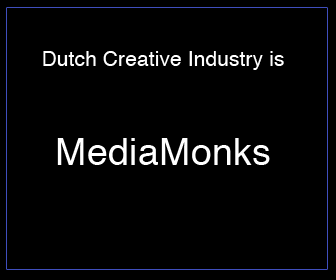
Unilever to eliminate fossil fuels in cleaning products by 2030
Global manufacturer of cleaning and laundry products, Unilever says it will replace 100 per cent of the carbon derived from fossil fuels in its cleaning and laundry product formulations with renewable or recycled carbon.
This move is set to transform the sustainability of global cleaning and laundry brands including OMO (Persil), Sunlight, Cif, and Domestos and of well-known Dutch brands like Robijn, Sun and Glorix.
This new ambition is a core component of Unilever’s ‘Clean Future’, a ground-breaking innovation programme designed by the company’s Home Care division to fundamentally change the way that some of the world’s most well-known cleaning and laundry products are created, manufactured, and packaged.
Clean Future is unique in its intent to embed the circular economy principles into both packaging and product formulations at the scale of global and local brands to reduce their carbon footprint. Most cleaning and laundry products available today contain chemicals made from fossil fuel feedstocks, a non-renewable source of carbon.
Unilever’s move to renewable or recycled sources of carbon for these chemicals is a deliberate shift away from the fossil fuel economy. The first initiative of its scale, Clean Future is a critical step towards Unilever’s pledge of net zero emissions from its products by 2039.
The chemicals used in Unilever’s cleaning and laundry products make up the greatest proportion of their carbon footprint (46 per cent) across their life cycle.
Therefore, by transitioning away from fossil fuelderived chemicals in product formulations, the company will unlock novel ways of reducing the carbon 2 footprint of some of the world’s biggest cleaning and laundry brands. Unilever expects this initiative alone to reduce the carbon footprint of the product formulations by up to 20 per cent.
Peter ter Kulve, President of Home Care, Unilever: “Clean Future is our vision to radically overhaul our business. As an industry, we must break our dependence on fossil fuels, including as a raw material for our products. We must stop pumping carbon from under the ground when there is ample carbon on and above the ground if we can learn to utilise it at scale. We’ve seen unprecedented demand for our cleaning products in recent months and we are incredibly proud to play our part, helping to keep people safe in the fight against COVID-19. But that should not be a reason for complacency. We cannot let ourselves become distracted from the environmental crises that our world – our home – is facing. Pollution. Destruction of natural habitats. The climate emergency. This is the home we share, and we have a responsibility to protect it.”
Annemarieke de Haan, General Manager, Unilever Benelux: “The Clean Future programme has already sparked various initiatives in the Netherlands, including the more natural product formulations of Sun and the use of recycled plastics in packaging of brands like Cif, Robijn, Glorix and Neutral. Another great example is our new product Cif Ecorefill, which was recently launched and which will reduce the use of plastics by 75 per cent. This announcement will give further momentum to these kinds of developments in the near future.”
Unilever is ring-fencing €1 billion for Clean Future to finance biotechnology research, CO2 and waste utilisation, and low carbon chemistry – which will drive the transition away from fossil fuel derived chemicals.
This investment will also be used to create biodegradable and water-efficient product formulations, to have the use of virgin plastic by 2025, and support the development of brand communications that make these technologies appealing to consumers. The Clean Future investment, which is additional to Unilever’s new €1 billion ‘Climate and Nature fund’, is focused on creating affordable cleaning and laundry products that deliver superior cleaning results with a significantly lower environmental impact.
Clean Future already supports industry-leading projects around the world to transform how the chemicals in Unilever’s cleaning and laundry products are made. In Slovakia for instance, Unilever is partnering with biotechnology leader Evonik Industries to develop the production of rhamnolipids, a renewable and biodegradable surfactant which is already used in its Sunlight dishwashing liquid in Chile and Vietnam.
In Tuticorin in Southern India, Unilever is sourcing soda ash - an ingredient in laundry powders - made using a pioneering CO2 capture technology. The soda ash is made with the CO2 emissions from the energy used in the production process. Both technologies are hoped to be scaled significantly under the programme.






